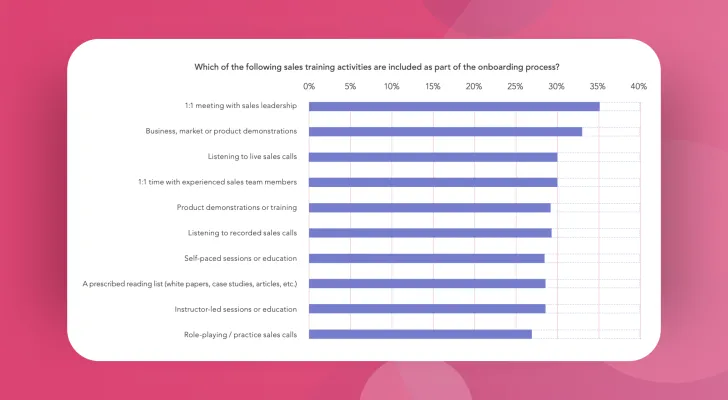In recent years there’s been a huge rise in remote and hybrid working and, as a result, leading a sales team is more complicated than ever. With fewer contact hours, creating a high performing team and developing relationships can be a challenge.
The truth is that hybrid working is here to stay, and being flexible can help retain talent and reduce employee churn rate, so it’s worth considering its impact on company culture. We’re big fans of being proactive and planning at Jiminny, so here are a few ways you can ensure that your dispersed team is motivated, healthy and connected.
Morale is directly connected to motivation
Motivation isn’t just about getting things done. It’s also about creating a culture that can boost the morale of your team – and the good news is that you don’t need to rely on guesswork. That’s right: we’re talking about the power of feedback.
Providing and asking for feedback is a great way to ensure your team feels heard and listened to. This kind of sharing culture can help your team develop skills and become more accountable for their own behavior as they understand how they slot into the bigger picture.
We’re not just talking about giving each other a pat on the back, either. Positive reactions obviously provide a much needed confidence boost, but pointing out areas for improvement can also be motivating. The key is to approach every piece of feedback with sensitivity and clear guidance.
It can be helpful to set out some rules around feedback. For example, it should be timely, objective, accurate, individualized, and relevant. Using this framework, your team will feel safe to share, become more responsive and show empathy. Plus, self-reflection is great for self-development.
Once you’ve asked for feedback, it’s also important to remember there should be structured follow-ups. Use insights to create opportunities for coaching and development so that your team knows you care about their present and future.
Letting people know what’s expected of them and giving your team a voice can create much needed connections, provide support and boost morale.
Mental health matters
Working remotely means it can be harder to check on your team's well-being, but it’s no less important. In fact, teams that prioritize mental health perform better regardless of where they’re based, so it actually pays to make sure your team is happy, healthy and engaged.
Managers can create a driven but supportive atmosphere by making sure they’re spending time with their team regularly. It’s important to make space to discuss challenges and celebrate victories together. Whether you’re introducing weekly shout-outs for people who’ve performed exceptionally well, cultivating team gratitude, or showing compassion, taking time to check in can work wonders for the health of your team and their job satisfaction.
When it comes to hybrid working, it’s also essential to ensure that working in person offers more than just sitting in a different chair. Use it as an opportunity to develop team-building and prioritize any key focus areas (such as targets, training, or coaching opportunities). When everyone can see you’re working towards the same goals and take ownership of the part they have to play, things often run more smoothly. As they say, teamwork makes the dream work.
Communication is key
When it comes to keeping a team engaged, it’s essential to make sure you’re communicating openly – sometimes in ways you might not expect.
One of the things people miss about the in-office environment is the small talk that can build a more coherent team. From weekly meetings to arranging remote coffee mornings, there are lots of great ways to ensure that you and your team get to know each other.
Remember that your team isn’t built up of robots– we’re all human beings with a life outside of work which can impact performance and engagement. Taking the time to talk on a personal level can give you a more holistic understanding of the people you’re managing, and it can help to build emotional and compassionate relationships.
The same personal approach should be taken for 1:1s. Rather than seeing them as a box-ticking exercise, speak to the people you manage to better understand them and help them reach their goals. By treating everyone as an individual, you’re more likely to be able to identify challenges, help them overcome them and hit targets.
When you develop a strong relationship with your team, they’re more likely to respond to your coaching and believe you want the best for them. Providing structure and following up on promises is the optimum way to ensure that your team knows your expectations. Plus, being proactive helps to side-step awkward or challenging conversations down the line, as conversations are clearly documented and everyone’s on the same page.
The right approach means managing a hybrid team doesn’t need to be more challenging than handling an in-person group. With a little finessing of the things you’re already doing, you can enjoy being part of a motivated and happily performing team.
Things can be tricky in the hybrid world, right? Here's our pointers for customer relationships, when you're not face to face.





.webp)






